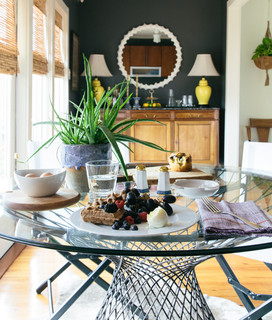Most of us have flowers or plants of some sort inside but we don’t always realise their excellent health benefits. Did you know that the air in your home could be harbouring unhealthy invisible toxins that can be eliminated by plants? And that strategically placing a plant or two in your teenager’s bedroom can help them to concentrate better when they study? See how you could take advantage of potted plants and flowers inside.
1. Natural healers
The aloe vera plant (Aloe barberae) is also known as ‘lily of the desert,’ the ‘plant of immortality’ and the medicine plant. The aloe vera plant has many healing benefits, including its ability to clean air.
The gel inside an aloe plant can help heal cuts and is also very effective at soothing burns, including sunburn.
Ancient Egyptians recorded use of this herbal plant in treating burns, infections and parasites. The leaves of this super plant can also help to alleviate asthma symptoms by boiling the leaves in water and breathing in the vapour.
2. Fresh air
NASA carried out a study called the Clean Air Study to determine which plants help to clean the air we breathe by eliminating harmful toxins. The spider plant (Chlorophytum comosum) is one of the plants on the list. It is one of the most popular and easiest to grow of house plants.
The spider plant will clean the air in your house of benzene, formaldehyde, carbon monoxide and xylene. These are all common volatile organic compounds (VOCs) that are emitted into the air in our homes by everyday items such as furniture, carpets and common household appliances.
3. Breathe easy
Snake plant (Sansevieria trifasciata ‘Laurentii’), also known as Mother In Law’s Tongue, is low maintenance and is one of the toughest of all house plants. It has stiff upright leaves and makes a great statement in any room.
As we all know, plants do the opposite of what we do when we breathe – they take in carbon dioxide and convert it to oxygen. Most plants do this during the day, but the snake plant is one of only a few plants that release oxygen into the air at night, making it the perfect plant to have in your bedroom as you sleep.
Place plants within your breathing zone, which is about two square metres around where you normally sit or sleep, to get the full benefits.
4. Natural humidifiers
About 10 per cent of the moisture in the air we breathe is released by plants. Areca palm (Chrysalidocarpus lutescens), also known as the butterfly or golden cane palm, is a very popular household palm. This luscious palm releases moisture into a room, making it particularly welcome in dry winter months. Plants such as cacti and succulents, on the other hand, retain water and therefore release very little water into the air.
5. Natural scents
Use fragrant plants such as dwarf kaffir lime trees (Citrus hystrix) to fill your home with a wonderful fresh smell instead of using artificial air fresheners. It’s a natural and chemical-free way to freshen your home, not to mention being handy for cooking.
6. Less stress, more success
Studies have shown that having plants in your home, or even in your workplace, have a positive effect on the occupants, helping to reduce stress and fatigue and enhance productivity.
Place some house plants, particularly those with broad leaves, on your desk at work, in your home office and in any area of your home where children study or do their homework. Any palm, such as bamboo palm (Chamaedorea seifrizii) or a weeping fig (Ficus benjamina), will regulate humidity and reduce carbon dioxide emissions in your home or office.
7. Restful sleep
Getting the recommended seven to eight hours’ sleep per night can be difficult, especially when our minds are busy thinking about what happened during the day and everything we need to do tomorrow.
Studies have shown that the vapour from some plants, specifically lavender (Lavandula) and jasmine (Jasminum) can lead to a more restful sleep. Keep a lavender or jasmine plant by your bed. The smell from these plants induces a state of tranquility that will help you prepare for a good night’s sleep.
8. Improve your mental health
When you are feeling under the weather, nothing perks you up like the gift of a plant or colourful flowers. Studies have shown that hospital patients who have flowers or plants in their room, or who look out onto a garden from their room, often recover more quickly than those who have no plants around them.
Plants help to increase our levels of positivity and make us feel more secure and relaxed. They can also help with loneliness and depression. Caring for a living thing gives us a purpose and is rewarding, especially when a plant you have been lovingly caring for bursts into bloom. Choose easy-to-care-for plants such as African violets (Saintpaulia). They bloom all year round with little effort.




